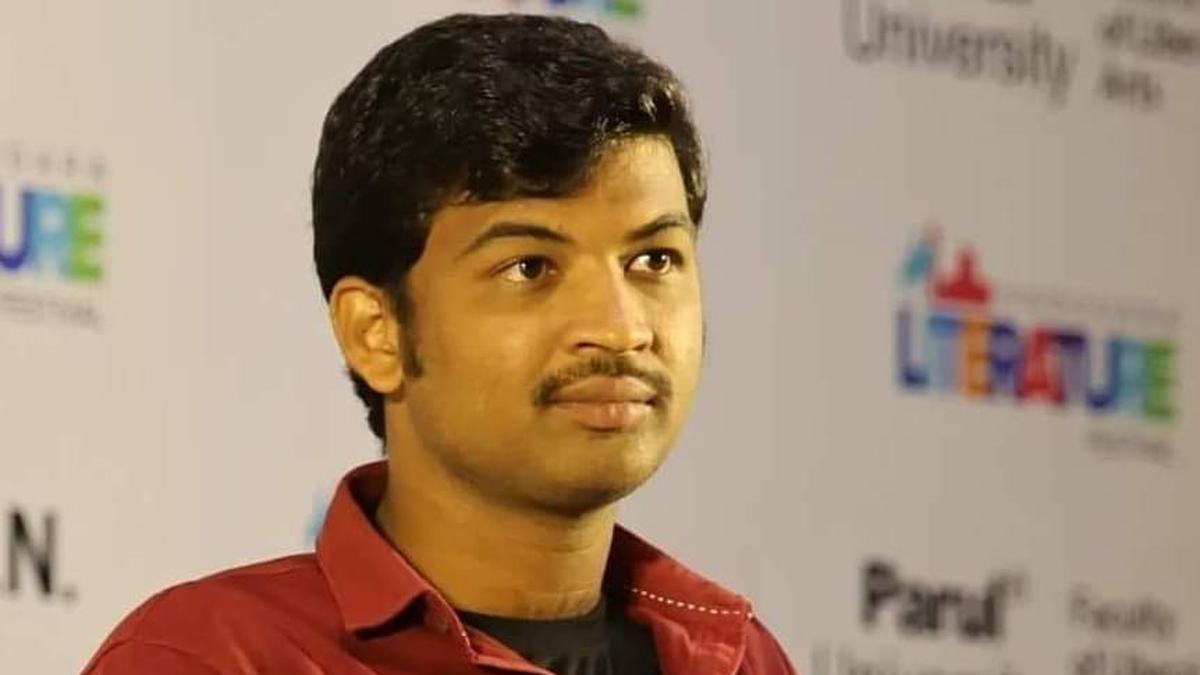
Beyond the boundaries and constraints of traditional urban-centric literary imaginations, there exists a vast expanse of Indian vernacular literature that delves into the often-overlooked segments of society. One such illuminating voice is that of Ramesh Karthik Nayak, a 26-year-old from the Banjara tribe in Telangana. Representing the tribal thanda of Vivek Nagar in the Jakranpally mandal of the Nizamabad district, Nayak’s work shines a spotlight on his community’s lived experiences and struggles.
Recently, Nayak achieved a milestone by becoming the youngest and the first Telugu writer to be awarded the prestigious Sahitya Akademi Yuva Puraskar 2024 for his exceptional collection of short stories titled “Dhavlo” (Song of Lament, 2021). His literary repertoire consists of four books, encompassing three short story collections and a volume of poetry, all intricately written in the Banjari language using both Telugu and English scripts. His writings have not only won several accolades but have also been featured in numerous international and national publications. Furthermore, his works have been integrated into the curricula of various universities in Telangana and Andhra Pradesh.
Drawing from his personal experiences, Nayak’s works portray the reality of the indigenous nomadic Banjara community, also known as Lambadas. These tribes trace their origins back to Rajasthan, although they are now dispersed across the nation. “I used to scribble poems in the back of my school notebooks since I was a child, and scorned by my teachers who often tried to stop me from writing. But I knew my calling; I wanted my Banjara community to have a voice,” recounts Nayak. Completing his Class X at SVSHS Bodhan, Nayak took on various odd jobs, including catering, distributing leaflets, selling books at events, and even repairing air conditioners before embarking on his literary journey. “Once my first collection of poems ‘Balder Bandi’ was published in 2018, there was no looking back,” he shares.
.
Nayak stands as a pioneering figure in introducing contemporary readers to the intricacies of the Banjara lifestyle, culture, and heritage. His work delves into the politics of identity and belonging, the innate splendor of the nomadic landscape, and the numerous challenges faced by the tribal community. “The Banjara identity is extremely fragmented, our festivals are hybridised, the colorful and flamboyant attires are now slowly fading, and the oral history is increasingly lost in translation. I want to capture the essence of our community, as we have remained hidden from mainstream literary spaces for a long time,” he emphasizes.
His celebrated work “Dhavlo” (2021) in Banjari delves deep into the nuances of Banjara life, while his collection of Banjari poems “Chakmak” (2023), written in English, addresses the displacements and crises experienced by nomadic tribes. In these works, Nayak poses challenging questions about the concept of ‘origin’ and evokes the profound loneliness associated with being uprooted from one’s homeland.
Through his writing, Nayak aims to bring the hidden talents of the margins into the light. “This award [Sahitya Akademi] and media coverage are attracting more attention towards my tribe and other tribal communities in the Telugu states; it is also a rare instance of tribal talent being recognized. Now the nation can see the talent that lies in the margins and in self-taught artists who come from little to no privilege,” he states.
The acknowledgment of Nayak’s work signifies a crucial step towards recognizing and appreciating the rich, yet often overlooked vernacular literatures in India. His journey from scribbling poems in the back of his school notebooks to becoming an acclaimed writer exemplifies the power of perseverance and the importance of giving marginalized communities a platform to share their stories. Nayak’s voice, resonating through his award-winning narratives, stands as a testament to the richness and diversity of Indian literature, urging the nation to look beyond the conventional literary frameworks and embrace the nuanced tales from its margins.












